The 1991/92 season saw Liverpool with another familiar face at the helm but not all was smooth sailing as another trip to Wembley was booked. Jeff Goulding tells the story.
It’s the summer of 1991 and Prime Minister John Major’s Britain. A man so grey and bone-achingly boring that a large proportion of the population would sleepwalk into another five years of Tory rule a little over a year later. The first Gulf War is underway and the IRA have launched a mortar bomb attack on 10 Downing Street, narrowly missing the Cabinet who were in session at the time.
In Liverpool, Labour MP Terry Fields is jailed for refusing to pay his poll tax. Upon his release from Walton Jail, he tells reporters that he had met a better class of person in prison than he ever met in Parliament. That sounded about right then, it wouldn’t be too far off the truth now, to be honest.
In Sheffield, an inquest into the Hillsborough Stadium disaster recorded a verdict of accidental death on all 96 victims. It was as cruel as it was unjust, 96 families and countless others were about to spend three decades climbing their own personal hills to overturn those verdicts. They did it their own way, but they reached the top and they won.
In football, the mutterings around the game’s upper echelons were all about a new ‘super league’, which would replace the First Division. They’d call it the Premier League. Broadcasters rubbed their hands with glee and club coffers would eventually fill with loot.
Little did Liverpool fans realise that this was the last campaign of football’s so-called ‘dark ages’, and that the Reds’ 18 league titles would be expunged from history by broadcasters and rival fans. Would we have celebrated them as much as we had done if we knew that soon we’d be told that only championships secured after 1992 count? We probably would have to be fair.
Souness at the helm
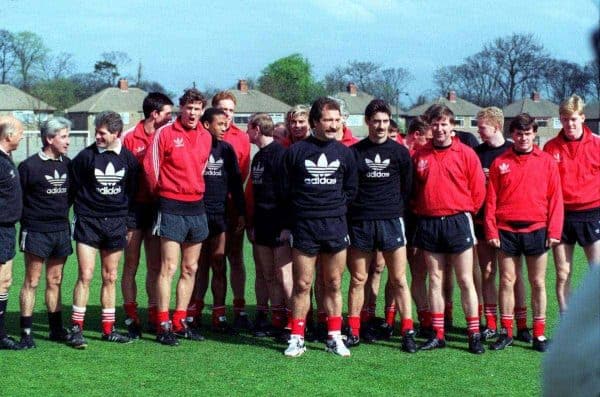
In the summer of 1991, Liverpool Football Club were potless, a strange feeling back then. They had finished runners-up to league champions Arsenal the season before. Man United had won the European Cup Winners’ Cup and Sheffield Wednesday had won the League Cup. Still, without the benefit of 30 years of hindsight, most Reds thought that more silverware wasn’t too far away. As it turned out, we were sort of right but the crumbs served up in the ’90s and noughties weren’t quite the banquet we had become used to.
The big spenders in the transfer market included Aston Villa – who had just sold David Platt to Italian side Bari for £5.5 million – Leeds, Chelsea and Liverpool. The Anfield board would throw its weight behind new boss Graeme Souness, who had replaced Dalglish. Offloading Peter Beardsley and Gary Ablett to Everton for a combined £1.75 million and Steve Staunton to Villa for £1.1 million, they then went on to splash a combined £6.35 million on Mark Walters, Dean Saunders and Mark Wright.
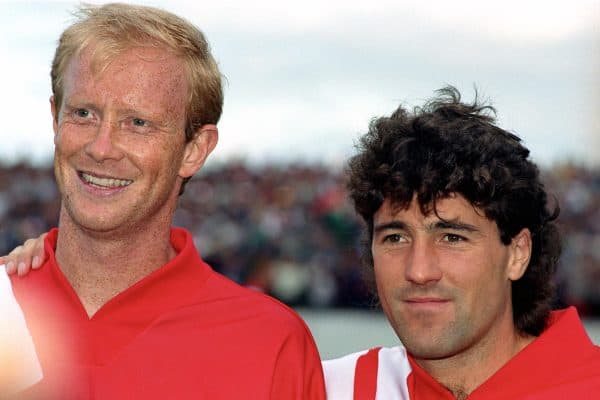
Souness would take something of a sledgehammer to Liverpool Football Club, literally demolishing the boot room. And – just as he had done at Rangers – he would operate a revolving door policy when it came to transfers. The subsequent loss of experienced players like Gary Gillespie and Steve McMahon would prove costly.
Assessing Souness as the manager is complicated. It’s true that his reign was ultimately one of failure, and off the field his infamous “exclusive” in a certain tabloid rag will most likely never be forgiven by many. However, in truth, the seeds of Liverpool’s decline had been sown long before Dalglish’s shock resignation in February, and the former midfield great was simply the wrong man at the wrong time.
Liverpool needed steady evolution, not the botched revolution attempted by Souness, and with a healthy dose of hindsight, his appointment looks doomed to calamity all along. And so it was, but in 1991, with memories of a league championship under another Anfield legend little more than a year old, many of us were happy to see an old boy return to the fold.
Consistently inconsistent
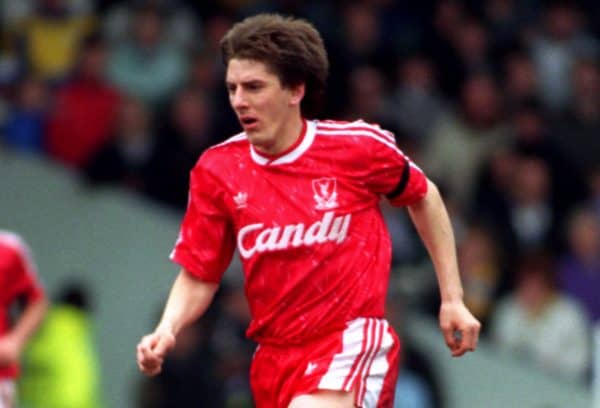
The story of Liverpool’s league campaign is one of woeful inconsistency, however. The Reds would stumble through the first half of the campaign, ending the year in sixth place with a 1-1 draw at Goodison Park. They had won just eight of their 22 games, drawing 11 and losing three. Liverpool’s new £2.9 million striker, Saunders, had scored four league goals in 23 appearances.
The team had struggled in the league, with little to cheer for Liverpool supporters. There was however an oasis of joy for Kopites with the visit of Everton. This would be Beardsley’s first match at Anfield since his move across Stanley Park, and is a stark contrast to modern derby fair, he was afforded a very generous reception by the red half. He would later comment:
“Just before the game the Kop chanted my name and I don’t suppose that’s happened too many times, an Everton player getting his name chanted by the Kop. But during the game, with Liverpool winning, the crowd started to chant, ‘What a waste of talent!’ The Kop were a bit special to me on that day and I won’t ever forget it.”
As the game got underway, Liverpool raced out of the traps and David Burrows scored the opener inside the first minute. Another first-half strike by Sunders and a second-half goal from Ray Houghton put the tie beyond the Blues, who did manage to muster a consolation goal.
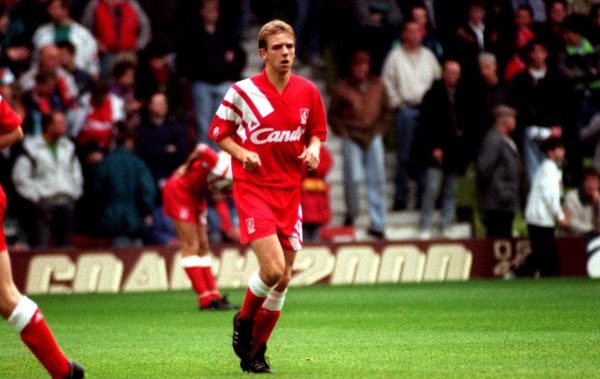
So comprehensive was Liverpool’s mauling of Everton, that the Guardian — proving that Kopites in 1991 weren’t alone in thinking we’d soon be winning league titles again — would suggest the result proved ominous for the rest of the division. Here is a snippet that couldn’t be any less prophetic:
“It was like a dagger through the heart. Spectators setting their watches at the kick-off hardly had time to push back the stopper before Burrows struck the fiercest of drives that took a deflection and left Southall as though petrified.
“If he had not seen Liverpool’s first goal coming, the Kop had. The moment the ball left the full-back’s boot, their roar carried through the air like a cloud scudding down the Irish Sea.
“For the next quarter of an hour it never relented, and neither did Liverpool. They were back into the stride that made them indefatigable before last season’s upheavals. And this was without Barnes, Ian Rush and Wright.
“Therein lies the threat to the rest of the First Division. For it was the account young players like McManaman, Tanner, Marsh and particularly Burrows, who is still only 22, gave of themselves in this fiercely contested match that bodes ill for others.”
The Reds would win just two of their next 11 games, which meant that by the time December arrived the mood around Anfield was far from buoyant. November brought the death of Freddy Mercury and would see unemployment in the UK rise to 2.5 million as the country continued to struggle under Tory rule.
Cup ventures
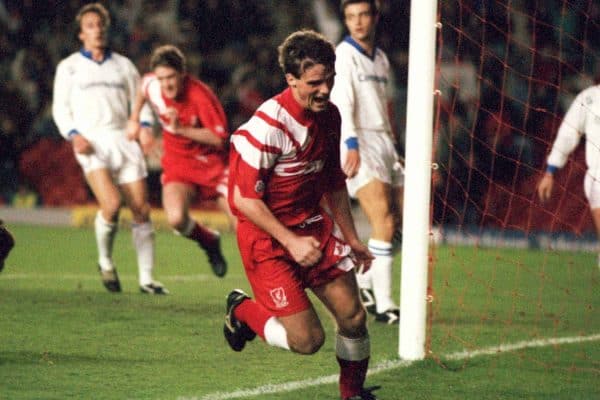
Souness would take some comfort from his team’s progress in Europe, Liverpool had advanced to the fourth round of the UEFA Cup thanks to victories over Kuusysi Lahti, Auxerre and Swarovski Tirol. However, the humbling at the hands of Third Division Peterborough United in the League Cup would be described as “one of the biggest upsets in the history of the English game” by the Guardian.
The 1-0 scoreline didn’t flatter Peterborough, and Reds goalkeeper Bruce Grobbelaar was singled out by British Soccer Week for a calamitous display:
“Grobbelaar’s 19th-minute blunder gifted Garry Kimble, a free transfer signing from Gillingham, the decisive goal and a famous victory which ranks with Peterborough’s 1965 FA Cup beating of Arsenal.
“But Liverpool could easily have lost by an even more embarrassing margin as famed giant-killers Posh, in front of the disbelieving eyes of a 14,000 plus London Road crowd, bustled them into an amazing catalogue of errors.
Peterborough goalkeeper Fred Barber ran out for the game wearing a ‘mad professor’ mask but it was his opposite number Grobbelaar who played the clown with his incredible mistake settling the tie.”
An incandescent Souness would say, “They outfought us and outplayed us but we gifted them the goal. We played as though we didn’t realise what was happening and thought we were in a Sunday game until the second half.”
The victory would see Peterborough’s hero of the night, Gary Kimble, dream of ultimate glory in the cup. He would tell a reporter, “After this, I think we can go all the way and I mean that. We have beaten Liverpool, so what else is left?” Sadly for him, this wasn’t the Liverpool we had all become accustomed to for so long.
For Liverpool, who would ultimately go out of the UEFA Cup to Genoa, salvation would lie in the FA Cup. In January 1992, with rumours of a general election swirling in the air, the Reds travelled to Crewe Alexandra to begin their journey to Wembley. The tie proved a stroll in the park with not a hint of a giant killing in sight. A hat-trick from John Barnes after McManaman had opened the scoring saw Souness’ side charge safely into the fourth round with a trip to Bristol Rovers.
Liverpool looked to be on their way to the fifth round when Saunders put them in front on 38 minutes, until his namesake Carl levelled on the hour mark, earning his side a lucrative replay at Anfield. An unhappy Souness, heckled by a Rovers fan as he gave an interview on the pitch, would say:
“We’re happy to still be in the competition. It was always going to be hard here and so it proved. They worked very hard and they will be pleased with their performance.”
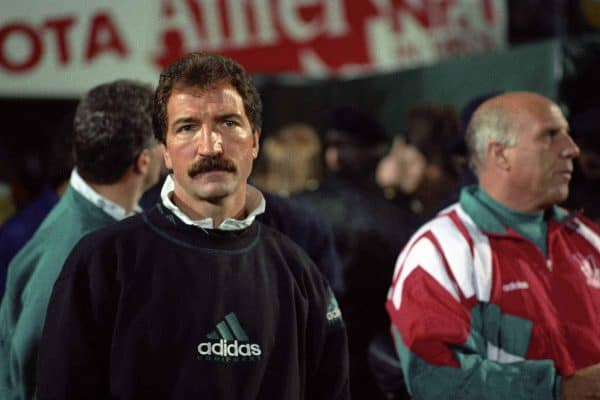
While these sorts of results always happen in the cup, it really shouldn’t have been that hard for Liverpool. The sense that the cracks appearing in Anfield’s crumbling empire were becoming chasms was all-pervasive. After 18 minutes of the replay, which took place just two weeks later, it would feel like we had all fallen into one of them.
The hero of Rovers’ first leg fightback, Carl Saunders, had put Bristol 1-0 up in front of the Kop. He could hardly believe his luck and neither could the 7,000 West Country supporters in the away end. The goal was a gift from David Burrows who had misdirected a headed clearance into his path. The striker took the ball comfortably on his chest and volleyed it past Grobbelaar. The Kop fell into a silent, nervous rage.
Liverpool were missing Barnes, Jan Molby, Michael Thomas and Walters, all out to injury – a treatment room bursting at the seams would become a recurring theme in the Souness era – and the Reds would field novices Mike Marsh and Jamie Redknapp in midfield. Yet this was Anfield and defeat here was still unthinkable to many of us.
A tactical switch suggested by Wright at halftime would see McManaman switch flanks in the second period. It would prove a masterstroke as the Scouser would level within five minutes of the restart. Saunders would seal the tie in the last 15 minutes, and again the Scouse youngster would be the architect. The Times newspaper would hail McManaman’s impact with these words:
“Liverpool, hugely relieved, were, at last, recognisable and McManaman was the focal point of their recovery. He designed further openings before making the decisive impact. With a quarter of an hour to go, he set off on a twisting run of fully 60 yards. He ended it by rolling an invitation to the feet of Dean Saunders, who promptly swept the ball home and assure Liverpool of a visit to Ipswich Town in the next round on Sunday.”
Rovers were given a prolonged ovation as they left the pitch. Kopites breathed a sigh of relief, not for the first time that season. They would do so again before this cup run was over.
The road to Wembley

Almost inevitably Liverpool would be held to a goalless draw at Portman Road, and would only edge the tie 3-2 after extra time in an Anfield replay. Houghton’s opener on the stroke of halftime would be cancelled out in the 89th minute by Gavin Johnson. Then Ipswich sensationally took the lead in the 96th minute, before Molby struck with a spectacular free-kick just two minutes later.
The stage was set for a grandstand finish and in the 100th minute, Ronnie Rosenthal fed McManaman, who, was charging in from the right-wing, chipped the ‘keeper and sent the Kop wild.
The visitors kept plugging away, but the Reds hung on for a memorable win, and in a moment of pure class a former Liverpool great would be afforded an ovation as he limped off the field with minutes remaining. Facing his old club, John Wark would speak later of his emotion at the gesture from the Liverpool fans.
“The fans gave me a standing ovation. They gave me one of best feelings I have ever known in football. I was almost in tears.”
Liverpool booked their place in the FA Cup semi-final at Highbury thanks to a 1-0 home victory over Aston Villa. Portsmouth were the opponents and they would almost stun the Reds in extra time. Darren Anderton would put Pompey in front after 111 minutes. However, veteran Ronnie Whelan took the game to a replay with a leveller within a minute of the second half of extra time.
The replay would end goalless after 120 minutes of football, and Liverpool were a penalty shootout away from Wembley. Portsmouth would miss three of their spot-kicks, while Barnes, Rush and Saunders put theirs away. The travelling Reds celebrated raucously, Liverpool were in the Final.
A say on the title
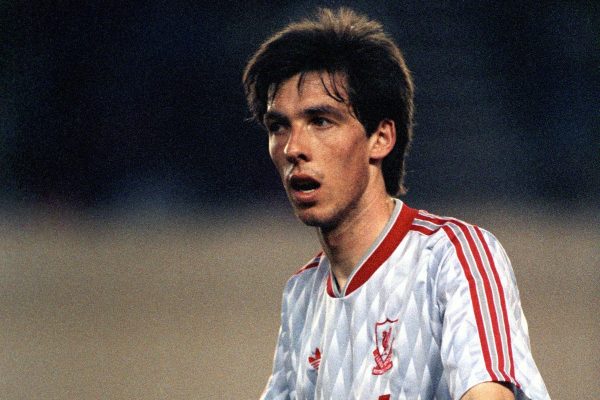
It was now April 1992, Party Politics had won the Grand National, John Major’s Conservative Government had won the general election and Man United had won the League Cup with a 1-0 win over Nottingham Forest, a victory that probably saved Alex Ferguson’s job.
Liverpool were well out of the title race, but they would have a decisive say in its ultimate destination. Leeds, who were locked in a battle for the championship with Man United, had looked to have blown it when they were held to a 0-0 draw at Anfield. However, it would be United who would “bottle it,” to coin a phrase from the modern era, by losing three games in seven days – one of them to Liverpool at Anfield.
Going into their penultimate game of the league season, United were under enormous pressure and couldn’t have wished for a more difficult game with which to keep their title hopes alive. Leeds United had kicked off earlier and won their game, meaning Ferguson’s men had to win at Anfield.
Liverpool and the Kop were in no mood to oblige.
The Reds would run out 2-0 winners at a blustery Anfield, with goals from Rush in the first half and an 87th-minute strike from Walters. The Times captured something of the schadenfreude on the Kop at the final whistle, writing:
“The dying embers of Manchester United’s challenge for the championship were finally extinguished yesterday, in front of an Anfield crowd that rose at the final whistle to bask in their dejection. It was cruel, but such is the bitter rivalry between Merseyside and Manchester.”
Rush had chosen the perfect moment to score his first-ever goal against Liverpool’s most bitter rivals and it had denied them the title. As stats go, that’s pretty poetic stuff. The Reds finished the season with a dull goalless draw at Hillsborough and then it was on to Wembley, and a chance to put a gloss on a disappointing season.
Souness had led Liverpool to a sixth-placed finish. His team had won 16, drawn 16 and lost 10. They had scored just 47 goals and conceded 40, in a 42-game season. They had, for the most part, been mediocre, but Kopites do love a trip to Wembley. Souness had at least delivered that.
FA Cup delight
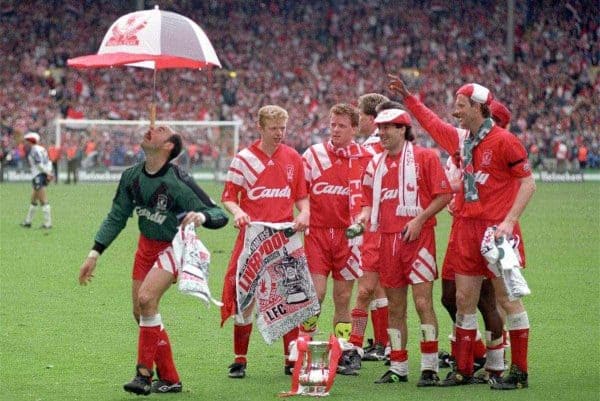
The capital was typically bathed in sunshine on cup final day, and Liverpool’s opponents would be Second Division Sunderland. They had made their way to Wembley via Port Vale, Oxford United, West Ham, Chelsea and Norwich City. Ahead of the game, Souness had become the big story, having undergone heart surgery just 32 days earlier. The Scot was under strict orders to rest but took his seat in the dugout nonetheless. At times he had to be physically restrained from overexerting himself during the game.
With the manager under doctor’s orders, Ronnie Moran would proudly lead the team out. It was deservedly a beautiful moment for one of the club’s most loyal servants. He would later speak of his immense pride:
“I marched out with the side and it was a very proud moment for me. I’ve still got the video at home and it will be something for my grandchildren to watch in years to come. It was a great occasion for us and I introduced the side to the Duchess of Kent. I’d been to Wembley on a few occasions already, but I’d never played there. I missed out in 1965 when we won it for the first time.”
The man who would prove decisive for Liverpool on the day though would once again be McManaman. His man-of-the-match display made light of the fact that he hadn’t kicked a ball in a month due to cartilage trouble. However, it would take a furious half-time outburst from Souness and a tactical switch to kick start Liverpool in the second half.
With the game locked at 0-0, the manager escaped the shackles of the club medic and let rip at the players in the dressing room. It would prove pivotal as, within two minutes of the restart, Thomas had put the Reds in front with a delightful finish. His provider of course was McManaman, who had switched from the left-wing to right just before halftime.
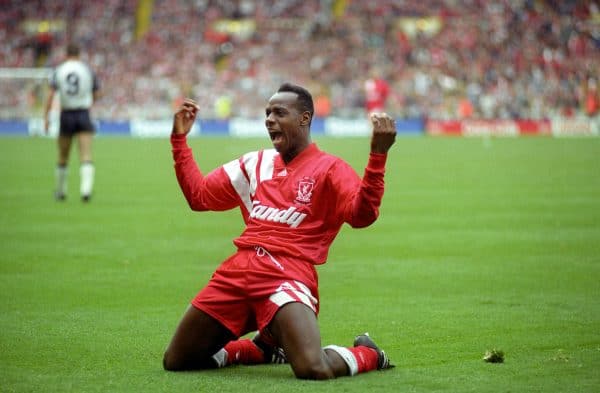
The Scouser’s performance would draw comparisons with Stanley Matthews whose pivotal display for Blackpool in the 1953 final is the stuff of legend, with the game forever described as the ‘Matthews final.’
The Times newspaper would gush:
“McManaman’s contribution was so influential that it refreshed memories of the 1953 final. That year, a winger claimed the Cup for Blackpool and stirred the nation’s emotions because, at the age of 38, Stanley Matthews was unlikely to have another chance of collecting a winner’s medal. By contrast, McManaman, aged 20, is at the dawn of his career, but he could develop into an England international of renown.”
The youngster’s contribution had been timely, given his recovery from injury had coincided with the loss of Barnes, who missed the final due to a thigh injury. Barnes had no doubts about the quality of his replacement, saying this after the match:
“I was surprised how well he lasted because he took a few knocks towards the end. For me, he was the man of the match.
“Even if he stood still now, he’d still be a hell of a player. I think he will improve and he has the potential to play for England, sooner rather than later.”
The Guardian would talk about how McManaman had “debagged the Sunderland defence,” leaving them to hold up their trousers with one hand while “trying to save the game with the other.”
It would prove to be a fruitless task for them, and Liverpool would seal victory with a Rush strike in the 67th minute. After all, what is an FA Cup Final without a goal from Rushy? In a gaff-ridden end to proceedings, Sunderland were accidentally presented with winners’ medals, and a jubilant Mark Wright screamed “You f***king beauty!” in front of a bemused Duchess of Kent as he lifted the trophy aloft. Imagine that, and some people don’t even like us booing the anthem.
Liverpool had succeeded in returning silverware to Anfield. This, of course, is any Reds manager’s first duty. However, as history has proved, it would amount to little more than the papering over cracks.
Liverpool FC in 1991/92
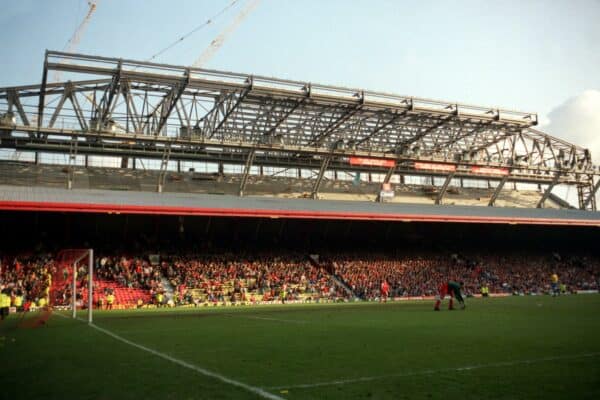
Manager: Graeme Souness
Captain: Mark Wright
Top Scorer: Dean Saunders (23)
Most Appearances: Bruce Grobbelaar (55)
League position: 6th (64 points)
FA Cup: Winners
UEFA Cup: Quarter-finals
League Cup: Fourth Round
Total games: 64
Games won: 27
Games drawn: 22
Games lost: 15
Clean sheets: 24 (overall)
Total goals: 88


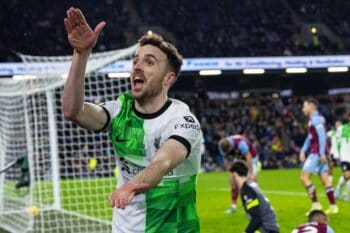
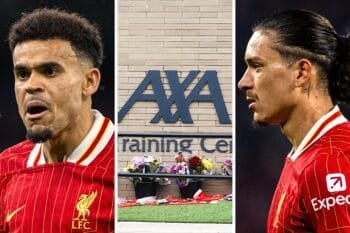
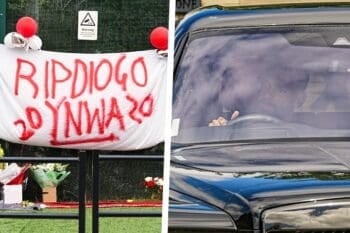
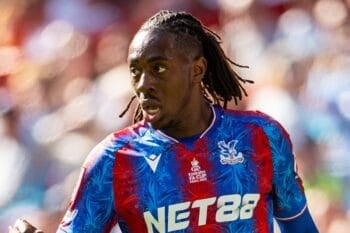
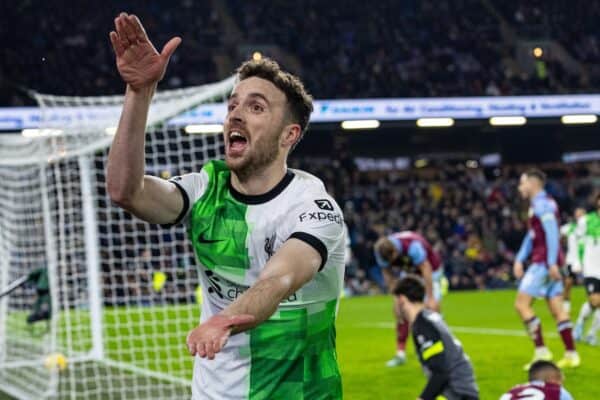
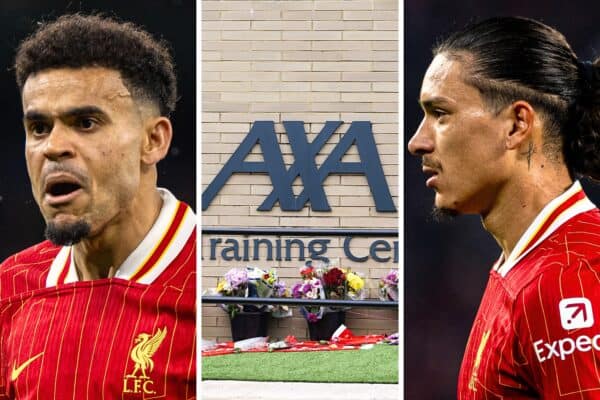
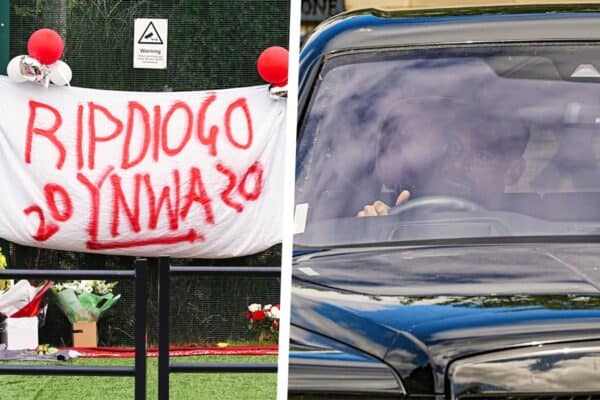
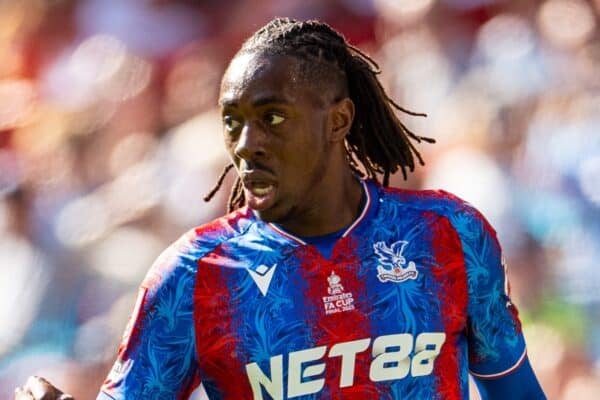
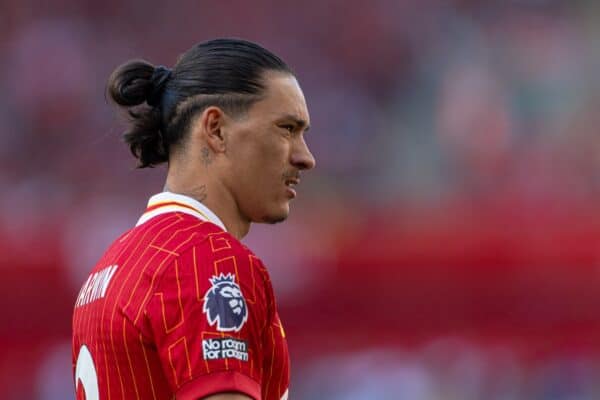
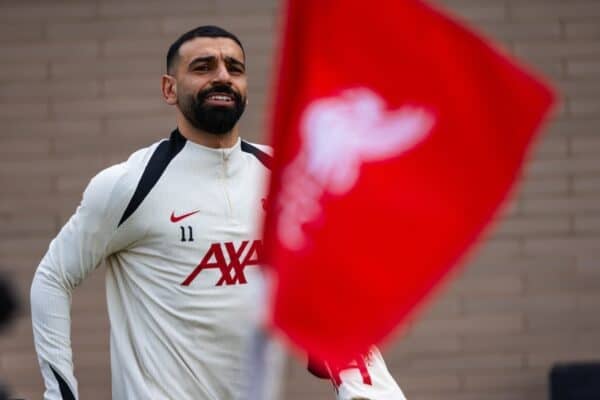
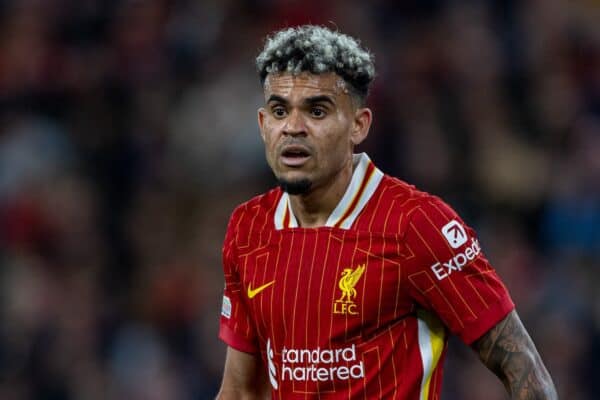
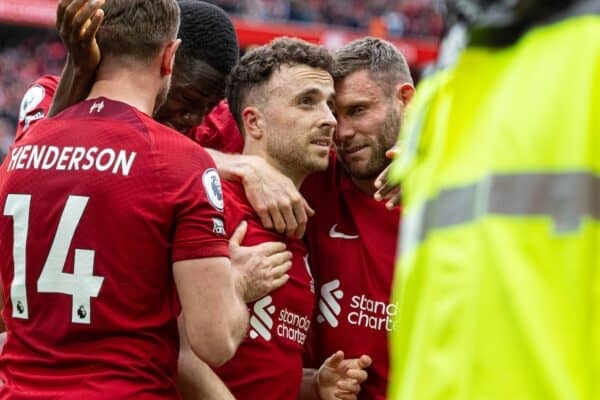




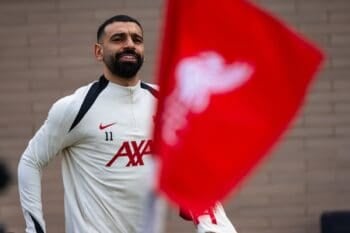
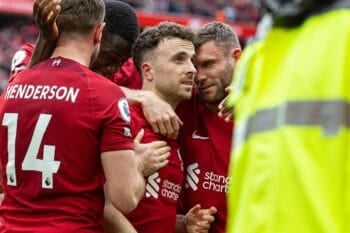
Fan Comments